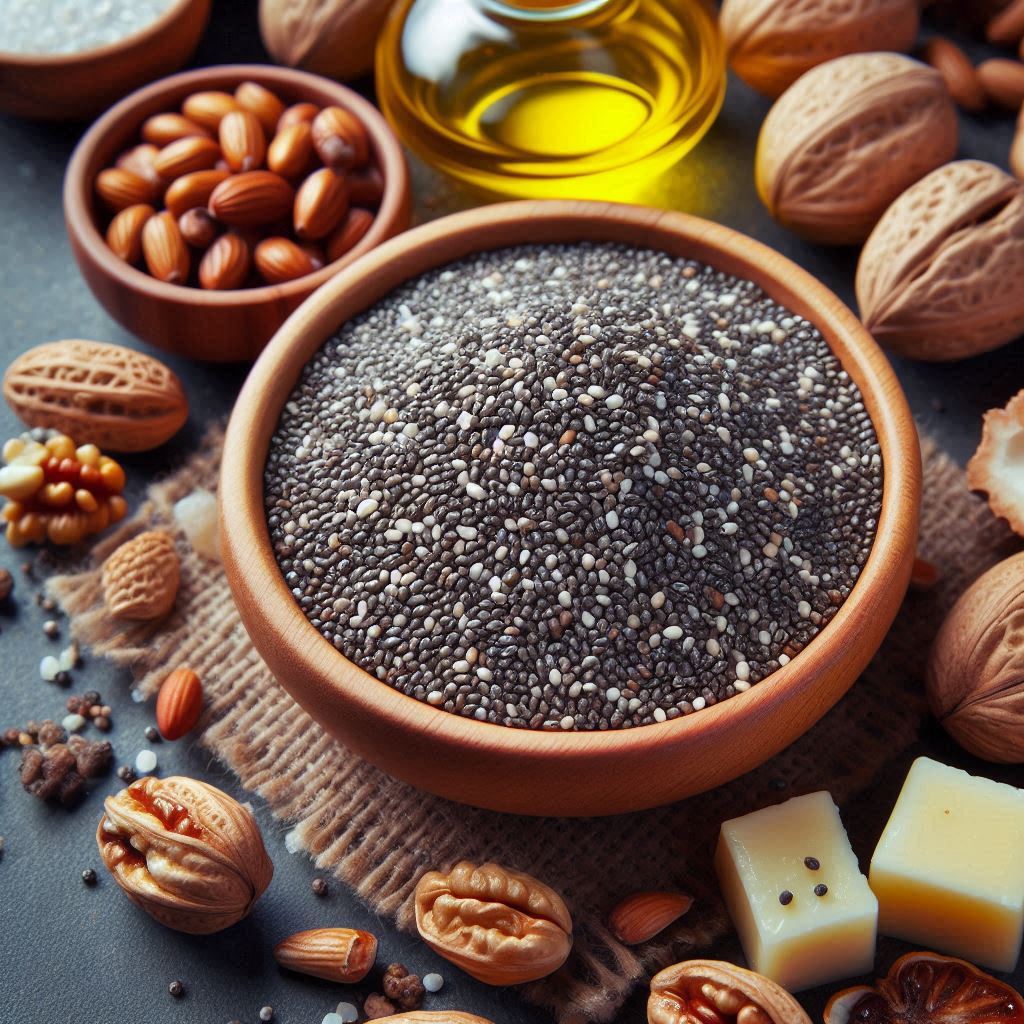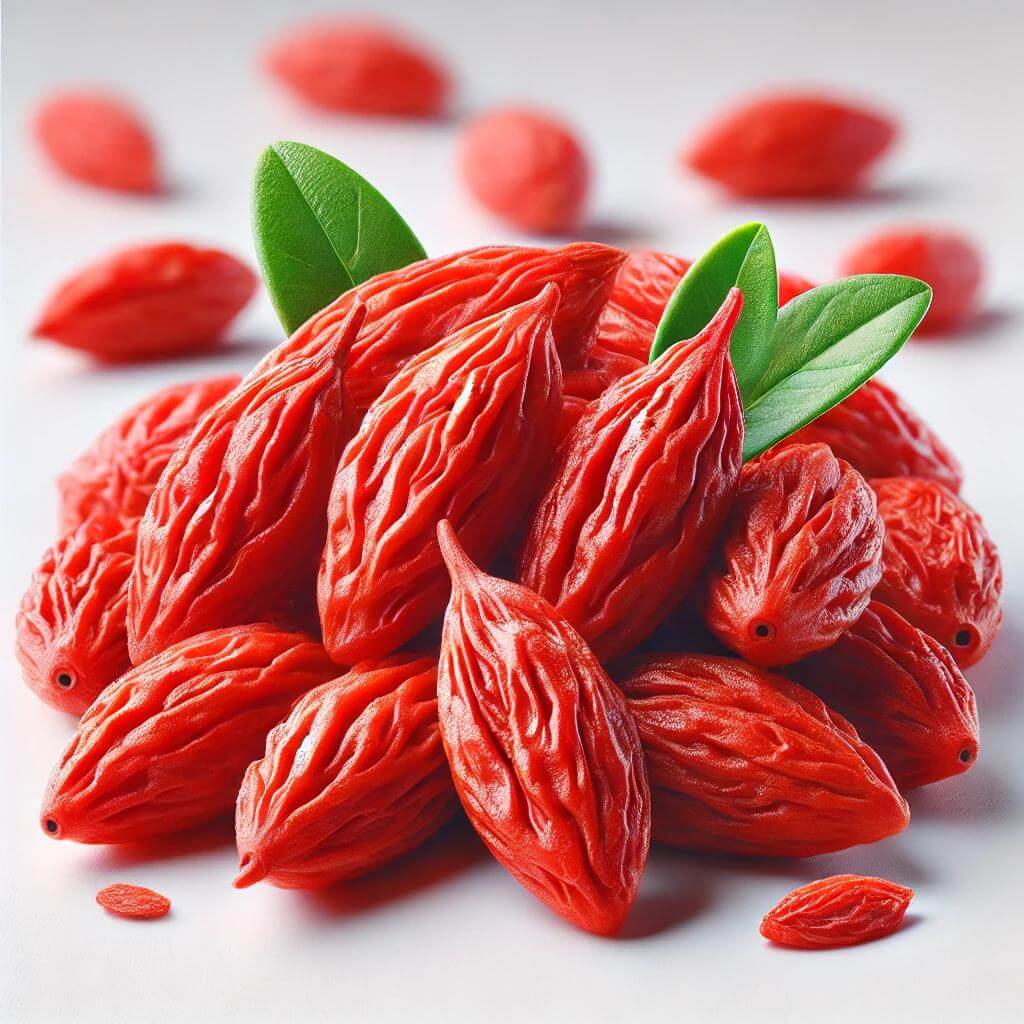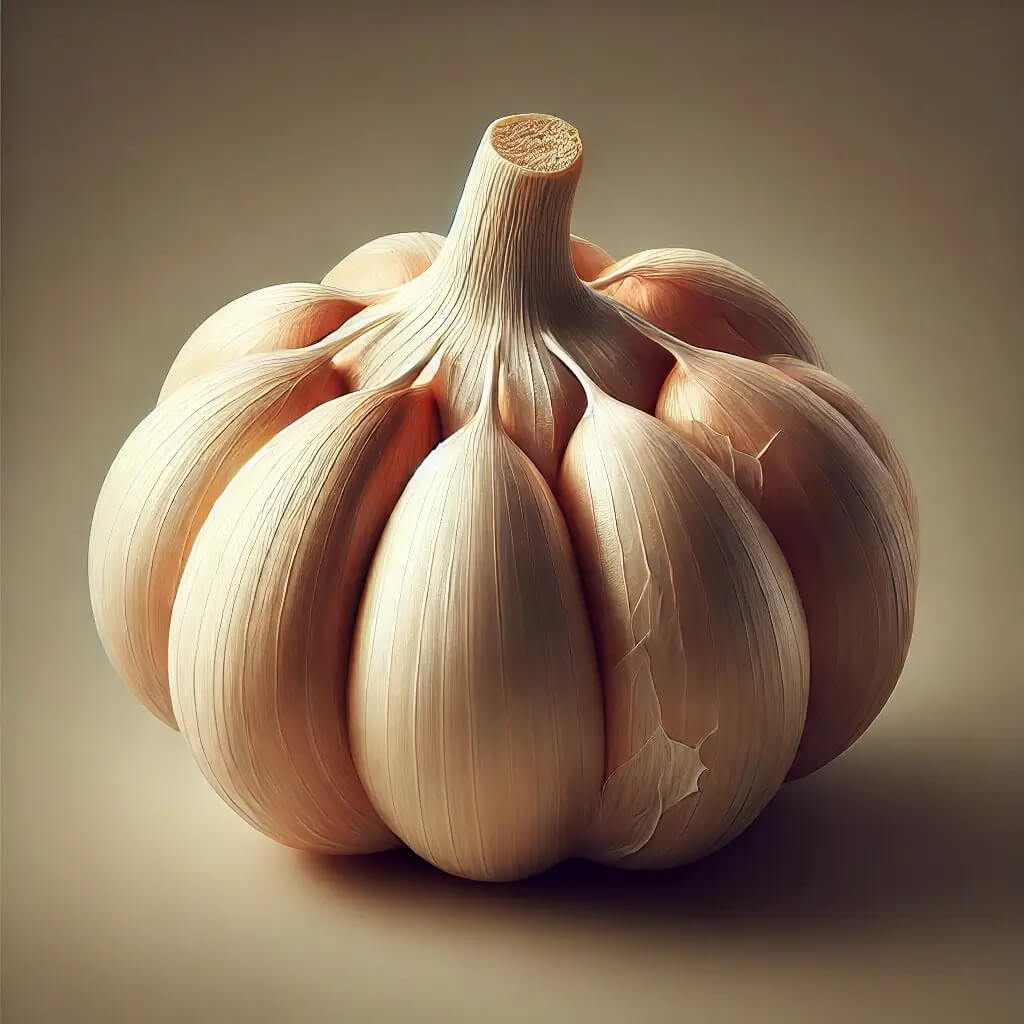Chia Seeds: The Tiny Superfood That Packs a Nutritional Punch
Chia seeds have emerged as one of the most popular superfoods in recent years, and for good reason. These tiny black and white seeds, derived from the Salvia hispanica plant, have been a staple in the diets of ancient civilizations like the Aztecs and Mayans. Despite their small size, they are packed with a wealth of nutrients that offer numerous health benefits. From their high fiber content to their rich supply of omega-3 fatty acids, chia seeds are a versatile and powerful addition to any diet. But what exactly makes them so special, and why are they considered a superfood? Let’s delve into the incredible benefits of chia seeds and explore how you can easily incorporate them into your daily routine.
Health Benefits of Chia Seeds: A Comprehensive Overview
Tehy are often lauded as a superfood due to their impressive nutritional profile. Here’s a detailed look at the many health benefits they offer:
1. High in Omega-3 Fatty Acids: Supporting Heart and Brain Health
One of the most notable benefits is their high content of omega-3 fatty acids, particularly alpha-linolenic acid (ALA). Omega-3 fatty acids are essential fats that play a crucial role in maintaining heart and brain health.
- Heart Health: Omega-3 fatty acids help reduce inflammation, lower blood pressure, and decrease the risk of heart disease by reducing levels of LDL (bad) cholesterol and triglycerides while increasing HDL (good) cholesterol.
- Brain Health: Omega-3s are also important for brain function, supporting cognitive processes, and reducing the risk of neurodegenerative diseases like Alzheimer’s.
2. Rich in Dietary Fiber: Promoting Digestive Health and Weight Management
They are an excellent source of dietary fiber, with nearly 11 grams per ounce (28 grams). This high fiber content offers several health benefits, particularly for digestive health and weight management.
- Digestive Health: The fiber in chia seeds helps promote regular bowel movements, preventing constipation, and supporting a healthy gut microbiome. The soluble fiber in chia seeds forms a gel-like substance in the stomach, which can slow digestion and contribute to a feeling of fullness.
- Weight Management: By absorbing water and expanding in the stomach, chia seeds help increase satiety, which can reduce overall calorie intake and aid in weight loss.
3. Excellent Source of Antioxidants: Protecting Cells from Damage
They are loaded with antioxidants, which help protect the body from oxidative stress caused by free radicals. These antioxidants play a vital role in preventing chronic diseases and promoting overall health.
- Cellular Protection: Antioxidants like quercetin, kaempferol, and chlorogenic acid found in chia seeds help neutralize free radicals, reducing inflammation and lowering the risk of chronic conditions such as heart disease, cancer, and diabetes.
- Skin Health: The antioxidants in chia seeds also contribute to healthier skin by combating oxidative stress, which can lead to premature aging and skin damage.
4. High in Protein: Supporting Muscle Repair and Growth
They are an excellent plant-based source of protein, containing all nine essential amino acids. This makes them a complete protein, which is particularly beneficial for vegetarians and vegans.
- Muscle Repair: Protein is essential for the repair and growth of muscles, making chia seeds a great addition to post-workout meals.
- Satiety: The protein content in chia seeds also contributes to feelings of fullness, helping to curb hunger and support weight management.
5. Rich in Calcium and Bone Health: Supporting Strong Bones
Chia seeds are a great source of calcium, providing about 18% of the recommended daily intake per ounce. This makes them particularly beneficial for bone health.
- Bone Health: Calcium is crucial for maintaining strong bones and teeth, and they offer a plant-based alternative to dairy products for meeting calcium needs.
- Osteoporosis Prevention: Regular consumption of chia seeds can help reduce the risk of osteoporosis and support overall bone density.
6. Supports Blood Sugar Regulation: Managing Diabetes
The high fiber content in chia seeds can help regulate blood sugar levels, making them a beneficial food for people with diabetes or those at risk of developing the condition.
- Blood Sugar Control: The soluble fiber in chia seeds slows down the absorption of sugar into the bloodstream, helping to prevent spikes and crashes in blood sugar levels.
- Insulin Sensitivity: Chia seeds may also improve insulin sensitivity, which is crucial for managing diabetes and preventing insulin resistance.
7. Rich in Minerals: Providing Essential Nutrients
In addition to calcium, chia seeds are rich in other essential minerals, including magnesium, phosphorus, and manganese.
- Magnesium: Supports muscle and nerve function, regulates blood pressure, and contributes to bone health.
- Phosphorus: Plays a key role in the formation of bones and teeth, as well as in the body’s energy production processes.
- Manganese: Important for bone formation, blood clotting, and reducing inflammation.
How to Incorporate them into Your Daily Diet: Practical Tips and Ideas
They are incredibly versatile and can be easily added to a wide variety of dishes. Here are some practical tips on how to incorporate chia seeds into your daily meals:
1. Chia Pudding: A Delicious and Nutritious Breakfast Option
Chia pudding is one of the most popular ways to enjoy chia seeds. To make chia pudding, simply mix chia seeds with your favorite milk (such as almond, coconut, or cow’s milk) and let it sit in the refrigerator overnight. By morning, the seeds will have absorbed the liquid and formed a thick, pudding-like consistency.
- Tip: Add a sweetener like honey or maple syrup, and top with fresh fruits, nuts, or granola for a delicious and healthy breakfast.
2. Smoothies: A Nutrient Boost for Your Drinks
Adding chia seeds to your smoothies is an easy way to boost their nutritional content. Chia seeds blend well with fruits, vegetables, and protein powders, adding fiber, omega-3s, and protein to your drink without altering the flavor.
- Tip: Add a tablespoon of chia seeds to your smoothie for a nutrient-dense start to your day.
3. Baking: Adding Nutrients to Your Baked Goods
They can be incorporated into a variety of baked goods, including bread, muffins, and cookies. They add a subtle crunch and a boost of nutrients to your favorite recipes.
- Tip: Replace eggs in vegan baking by using a chia egg. To make a chia egg, mix one tablespoon of chia seeds with three tablespoons of water and let it sit for a few minutes until it forms a gel-like consistency.
4. Salads: A Crunchy and Nutritious Topping
Sprinkle them on top of your salads for a crunchy texture and a boost of nutrients. They pair well with a variety of salad ingredients, including greens, fruits, nuts, and cheese.
- Tip: Combine chia seeds with your favorite salad dressing to help the seeds stick to the salad for an even distribution of nutrients.
5. Yogurt and Oatmeal: Enhancing Your Breakfast Bowls
Chia seeds can be easily added to yogurt, oatmeal, or cereal for an extra dose of fiber, protein, and healthy fats. They blend well with a variety of flavors and textures, making them a perfect addition to your morning routine.
- Tip: Add a tablespoon of chia seeds to your yogurt or oatmeal and let it sit for a few minutes to allow the seeds to absorb some of the moisture.
Potential Disadvantages of Chia Seeds: Things to Consider
While chia seeds offer numerous health benefits, there are a few considerations to keep in mind:
1. Digestive Issues: The High Fiber Content
The high fiber content can cause digestive issues for some people, particularly if they are not used to consuming large amounts of fiber. Eating too many chia seeds too quickly can lead to bloating, gas, and stomach discomfort.
- Tip: Start with a small amount of them and gradually increase your intake to allow your digestive system to adjust.
2. Allergic Reactions: Rare but Possible
Although rare, some individuals may have an allergic reaction to chia seeds. Symptoms can include skin rashes, hives, and difficulty breathing. If you experience any allergic symptoms after consuming chia seed, it’s important to stop eating them and consult with a healthcare provider.
- Tip: If you have a history of food allergies, introduce chia seeds into your diet gradually and monitor your body’s response.
3. Interactions with Medications: Blood Thinners
They are high in omega-3 fatty acids, which have blood-thinning properties. This can be beneficial for heart health, but it may also interact with blood-thinning medications like warfarin, increasing the risk of bleeding.
- Tip: If you are taking blood-thinning medications, consult with your healthcare provider before adding chia seeds to your diet.
Nutritional Values of Chia Seeds
Here’s the complete table of the nutritional values of chia seed per 100 grams:
| Nutrient | Amount per 100g | % Daily Value |
|---|---|---|
| Calories | 486 kcal | 24% |
| Total Fat | 30.7 g | 47% |
| – Saturated Fat | 3.3 g | 16% |
| – Polyunsaturated Fat | 23.7 g | – |
| – Monounsaturated Fat | 2.3 g | – |
| Cholesterol | 0 mg | 0% |
| Sodium | 16 mg | 1% |
| Total Carbohydrate | 42.1 g | 14% |
| – Dietary Fiber | 34.4 g | 138% |
| – Sugars | 0.5 g | – |
| Protein | 16.5 g | 33% |
| Vitamins and Minerals | ||
| – Calcium | 631 mg | 63% |
| – Iron | 7.7 mg | 43% |
| – Magnesium | 335 mg | 84% |
| – Phosphorus | 860 mg | 86% |
| – Potassium | 407 mg | 12% |
| – Zinc | 4.6 mg | 31% |
| – Vitamin C | 1.6 mg | 2% |
| – Vitamin B1 (Thiamin) | 0.62 mg | 43% |
| – Vitamin B2 (Riboflavin) | 0.17 mg | 10% |
| – Vitamin B3 (Niacin) | 8.83 mg | 44% |
| – Vitamin B6 | 0.12 mg | 6% |
| – Folate | 49 µg | 12% |
| – Vitamin A | 54 IU | 1% |
Summary: The Power of Chia Seeds in a Balanced Diet
They are truly a superfood, packed with essential nutrients that contribute to overall health and well-being. Their high content of omega-3 fatty acids, dietary fiber, antioxidants, and protein makes them a valuable addition to any diet, particularly for those looking to improve heart health, support digestion, manage weight, and boost bone strength.
Incorporating chia seeds into your daily meals is easy and versatile. Whether you choose to add them to smoothies, salads, yogurt, or baked goods,they offer a simple way to enhance the nutritional value of your diet. However, as with any food, it’s important to consume them in moderation and be mindful of any potential digestive issues or interactions with medications.
In conclusion, chia seeds are a nutrient-dense food that deserves a place in your kitchen. Their wide range of health benefits, combined with their versatility, makes them a convenient and powerful tool for supporting a healthy lifestyle. Whether you’re looking to improve your heart health, manage your weight, or simply add more nutrients to your diet, chia seeds are a small but mighty addition that can make a big difference.
*Disclaimer: The information provided in this article is for educational and informational purposes only and should not be construed as health advice. The content is solely the personal opinion of the author and is not intended to be a substitute for professional medical advice, diagnosis, or treatment. Always seek the advice of your physician or other qualified health provider with any questions you may have regarding a medical condition or before starting any new diet or treatment. Read more




1 comment